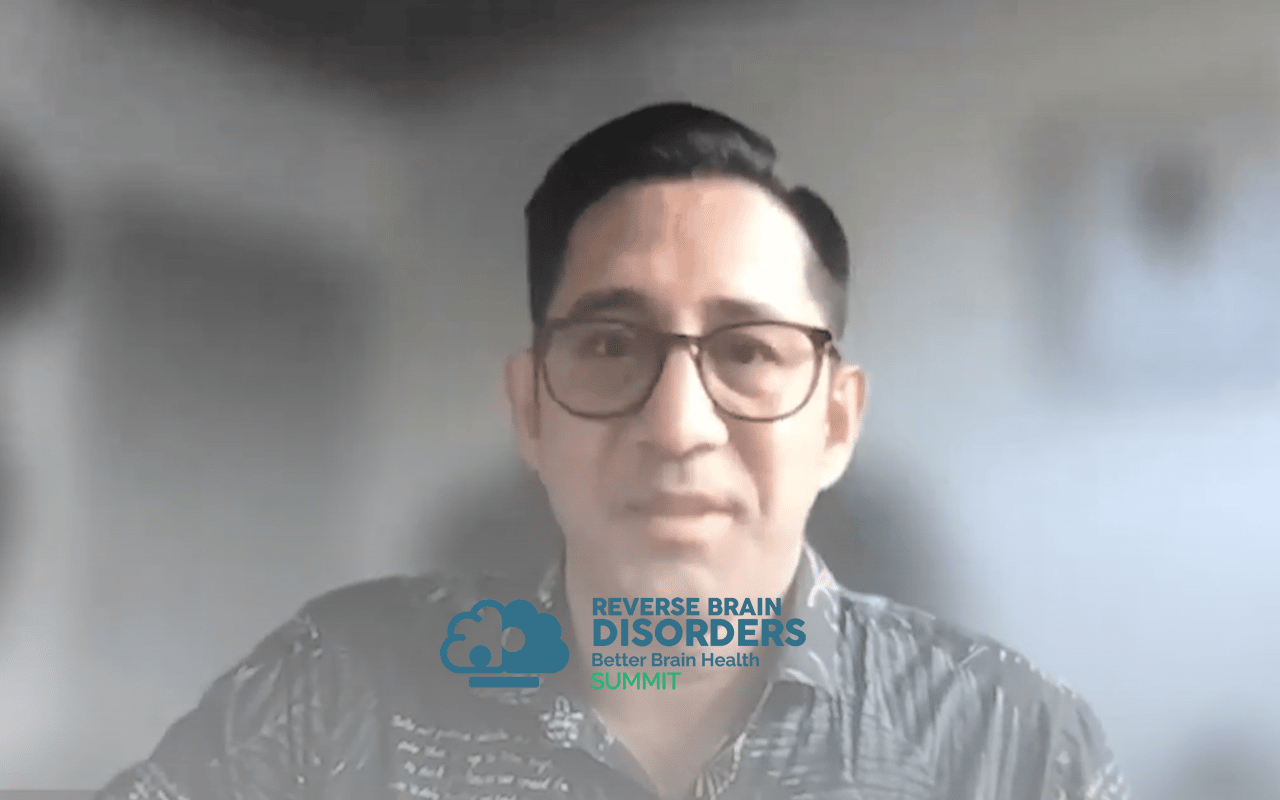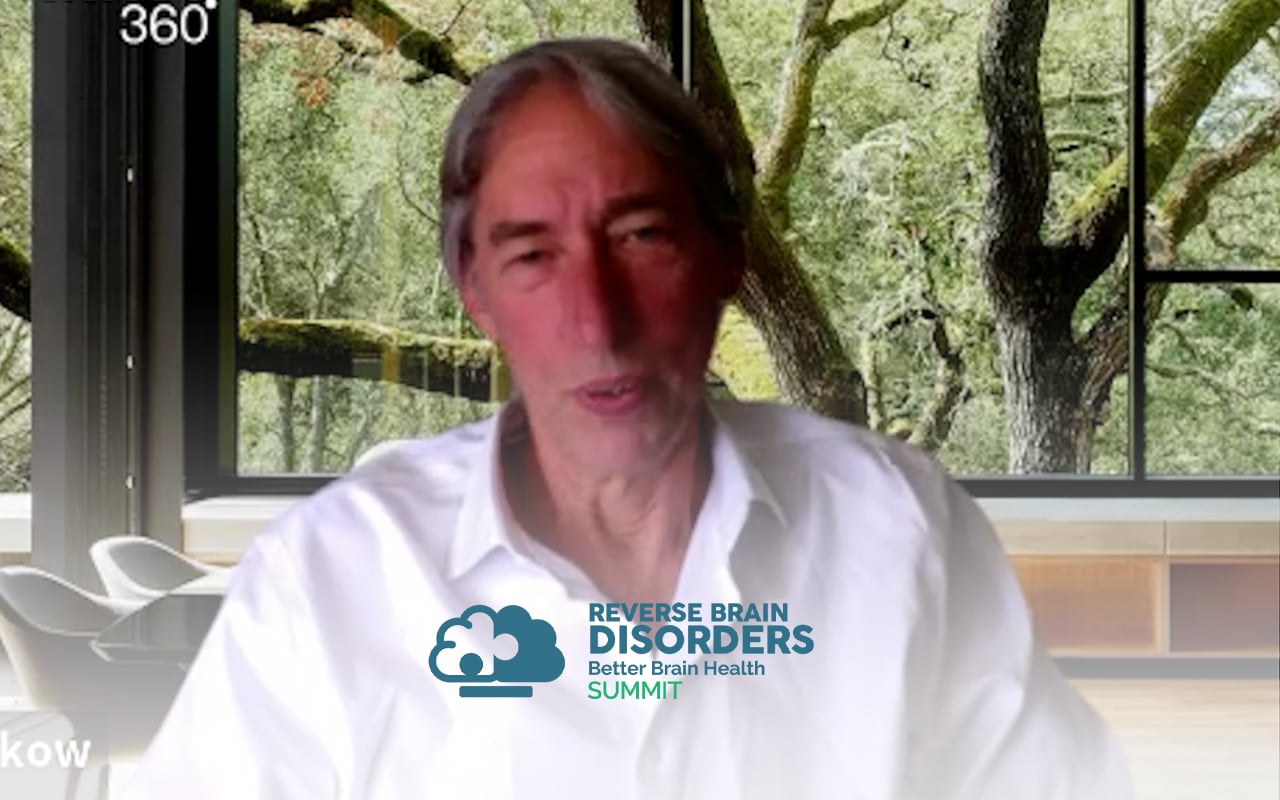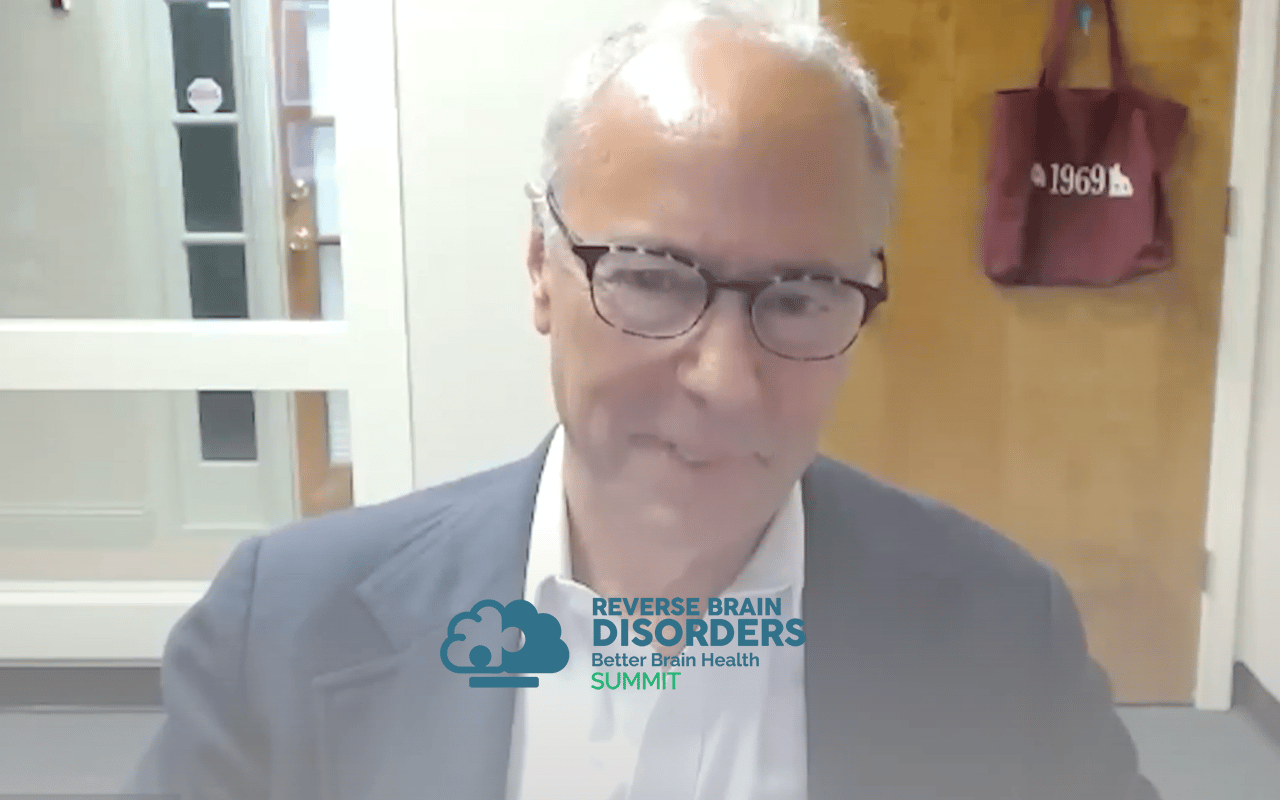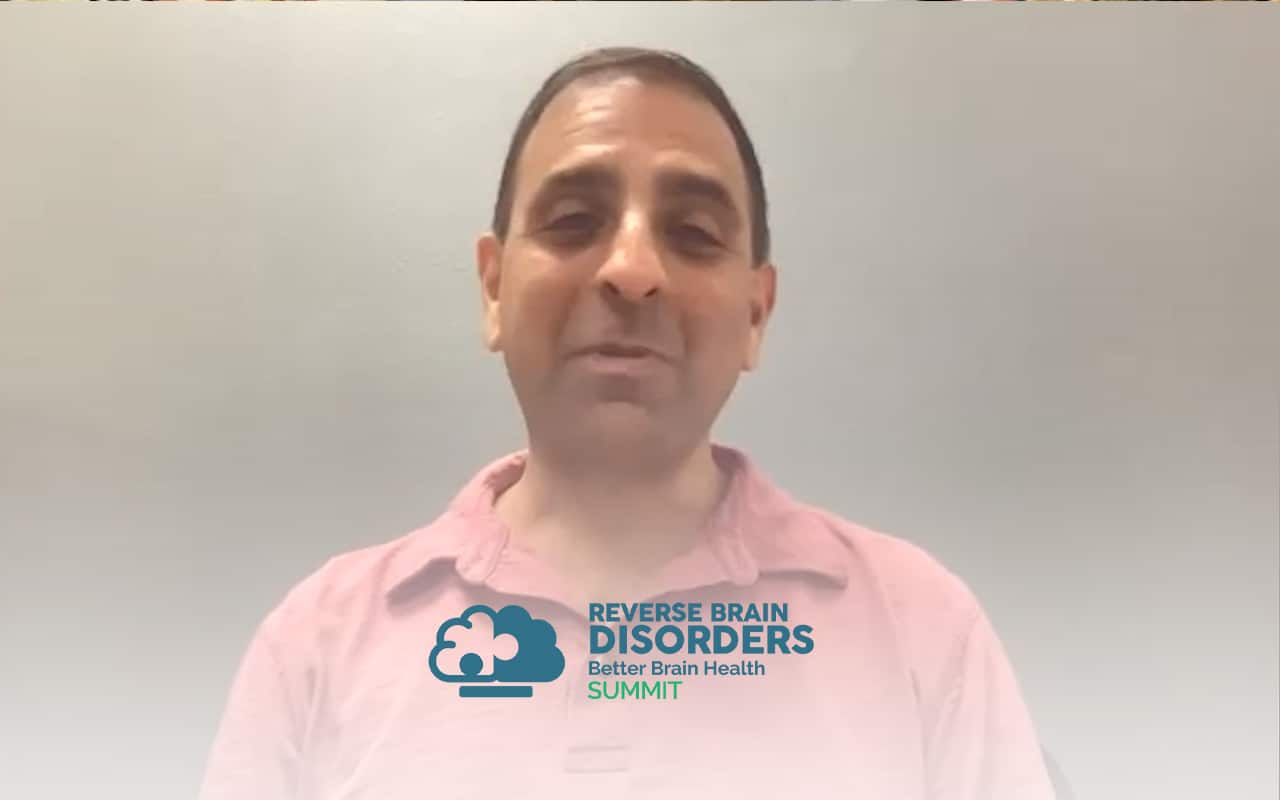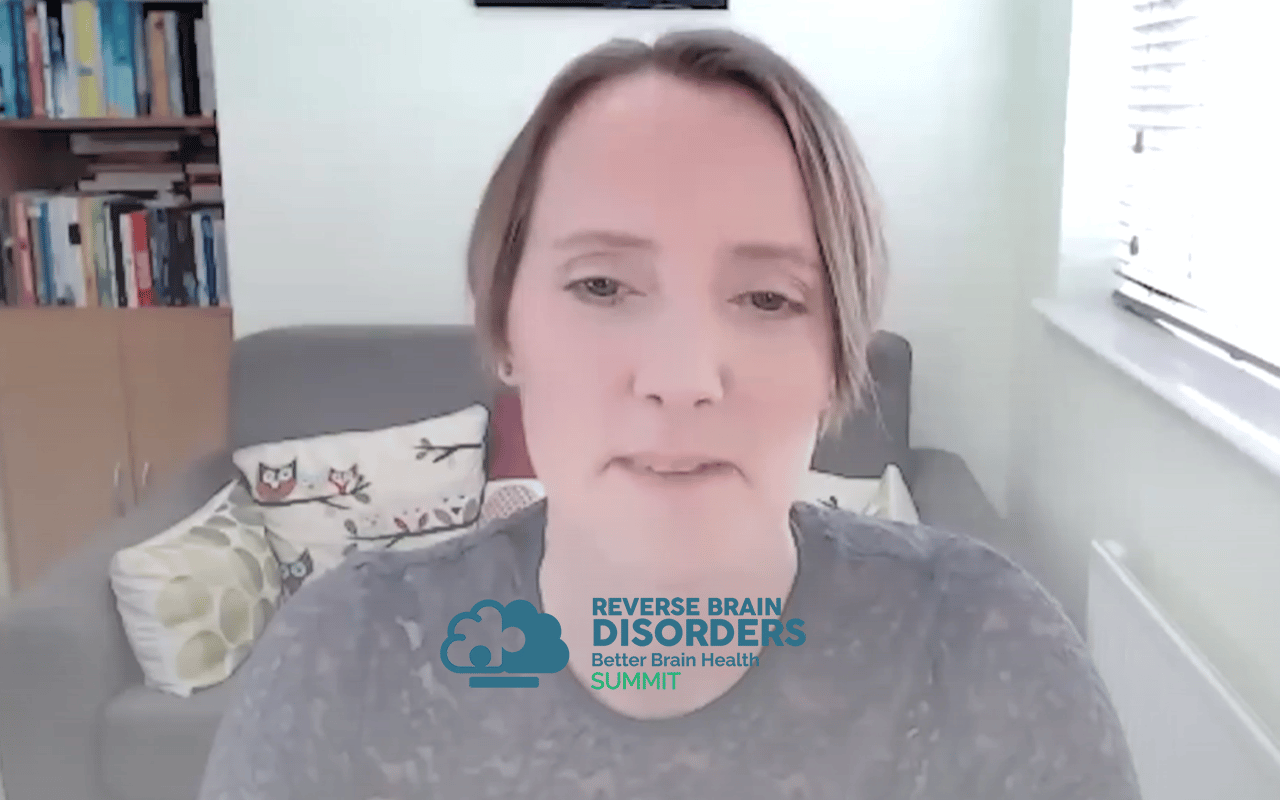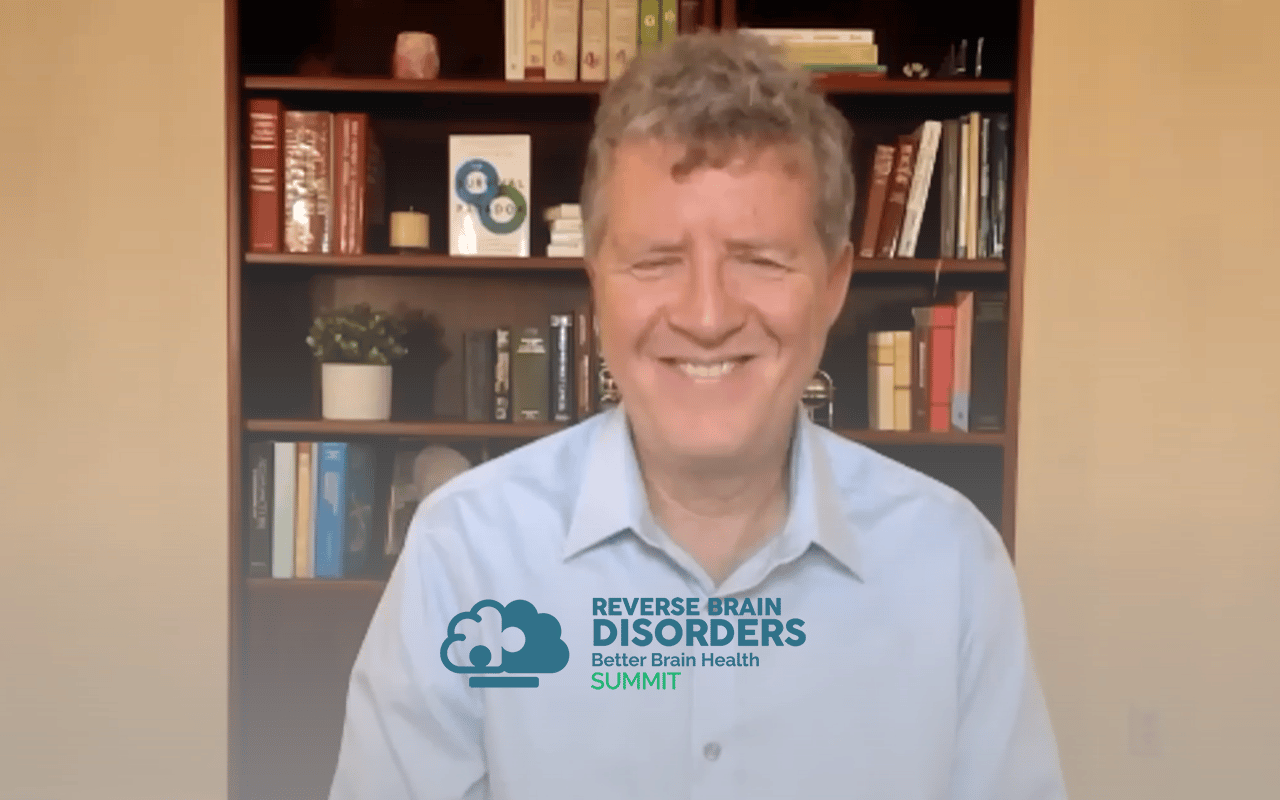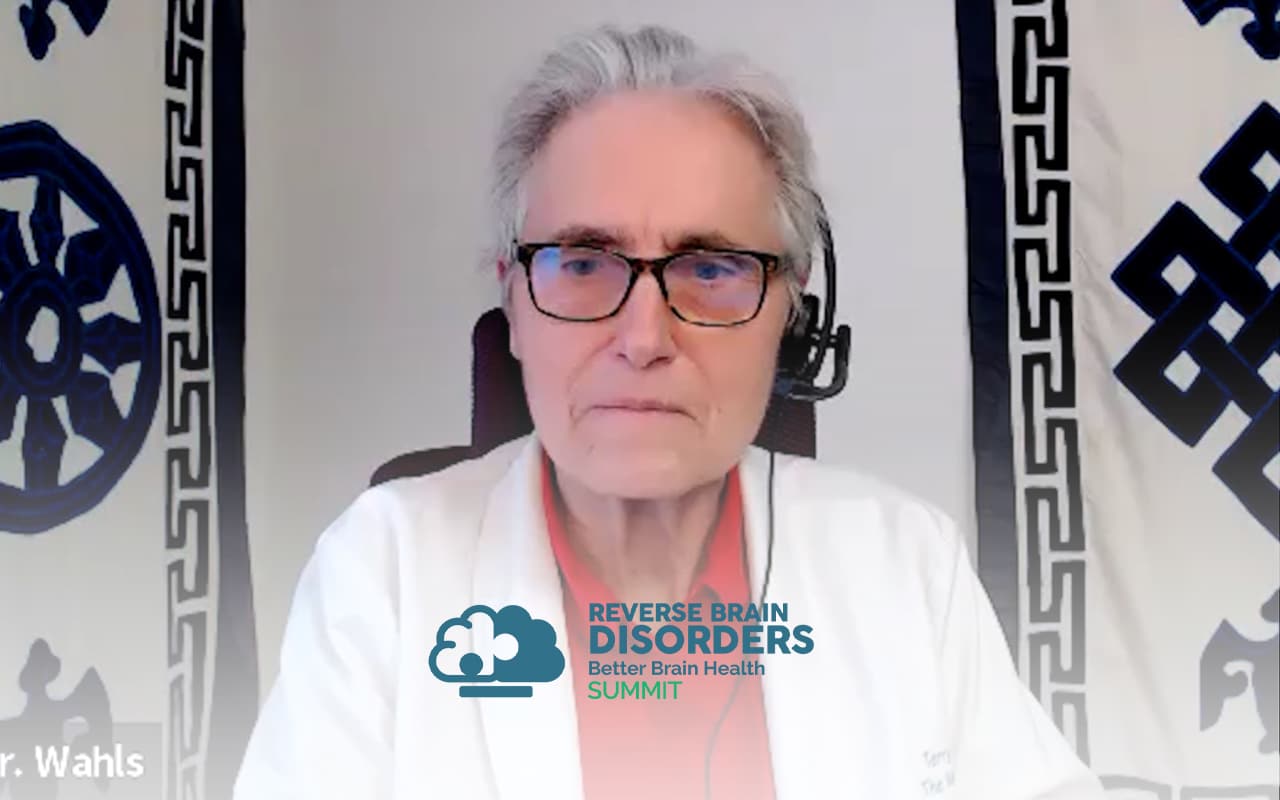Join the discussion below
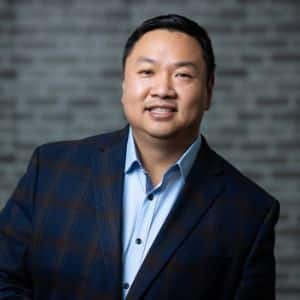
Dr. Ruan is the Founder and CEO of Texas Center for Lifestyle Medicine. He devotes his career in practicing and building systems that allow for efficient delivery of healthcare. He is a board certified internal medicine physician but also have advised with companies to improve their workflow, company culture, marketing,... Read More
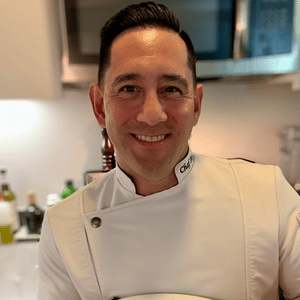
I am a Chef Health Coach with a passion for improving lives though healthy cooking. Strong believer in food first Culinary Medicine using evidence based practices to improve health outcomes. I support clients with culinary literacy, positive mindful eating practices, and culinary medicine to diminishing cooking barrier, increase confidence in... Read More
- The role of a chef when working with patients with brain disorders
- How impactful culinary medicine can help with healing
- Using the ketogenic diet approach to brain health
Cheng Ruan, MD
You know, one of the things I’ve always been really passionate about is getting health care professionals and the food industry together and there’s a lot of chefs that are truly passionate about using food as medicine and when it comes to the brain, there’s a lot of data over 100 year old data suggesting that food changes are instrumental for brain health, such as seizure disorders and memory loss and all sorts of other things as well. There’s no one to really better talk about it than Chef Molina. I’m really happy to well campaign on to discuss this really fabulous topic. He’s got a very unique um input because he’s one of the chefs that really bridges dietetics and medicine with the actual medical organizations on the island of Hawaii uh in Honolulu. So really excited to get chef Molina onto the platform to talk today. Well, awesome, thank you for coming on. We’ve had great discussions off camera and that’s actually why you’re on this time. But man, I would just like to introduce you to everyone and you know, what is, what is your story? Tell us about what your story is, what really got you from like this culinary mindset into the health field.
Ikaika (Matthew) Molina
Well, so obviously my name is Ikaika and I am a chef at chef health coach, but my story begins probably back in like 1992 I had four roommates in that time period over, you know, say seven years whether in different homes and whatnot, but I lost for them to metabolic diseases and at the time it really didn’t resonate with me. They lost two choices and I lost two to metabolic disease. And I think I think that really stuck with me, you know, at the time you’re growing up and you know, just weaving your way through life and you go through and you don’t think much of it there in the back of your mind, you’re thinking of your, you know, your colleagues loved ones and everything. But it stood out when in 90 was at 19, 2016, um, had an experience of understanding that the first whispers of the ketogenic diet and from there, I kind of, uh, you know, started researching and reaching out to people who are experts in the field to kinda understand it because I realized that at least on the metabolic health side, that it can be extremely. That’s amazing.
Cheng Ruan, MD
So, um, let’s get into that first thing. So losing four old roommates to chronic disorders of disease, That’s kind of a big deal. You know, we shouldn’t, we shouldn’t really play that off as sort of a foundational moment. Um, and here’s the thing, whenever we lose somebody that we know and deep down in our gut, we know that hey, you know, a lot of this could be preventative. It kind of eats away at us. I’ve had a very similar story as well in my life. Um, except you know, have I lost patients to metabolic diseases. Yeah, definitely a lot. Have I lost uh family members to metabolic diseases? Yeah. Have I lost friends to metabolic diseases. Absolutely. So I think the same thing that kind of drives you is similar to the things that drives us, but we also share something which is a very interesting family story. Can you share a little bit about your family and the in the Hawaiian background?
Ikaika (Matthew) Molina
Well, I think when I were thinking about family in general with with Hawaii, so I think it’s uh foundational e um, it’s it’s a collective larger group, um, you know, with your immediate family members, but in general it’s um in relation to, to food, it’s it’s very important, everyone kind of and contributes to two meals and um, it’s a place to discuss um events and obviously this is kind of like carries over into history as well. It’s something that’s been carried over. But yeah, I mean with, you know, with the family in Hawaii, it’s extremely important. And you’re, even if your extended family, it’s your embraced to come in and enjoy food. Yeah, the Hawaiian culture is very close knit.
Cheng Ruan, MD
You know, the word family far beyond extends just blood relatives as well, even though there’s, there’s a lot of the lineage is there and there’s traumatic history in the Hawaiian culture as well. Um, and and that also, you know, creates a bit of a distrust between the Hawaiians in the health care system. I mean we have the exact same thing in, in Texas, especially in rural Texas as well. A lot of trauma with cultures there, you know, and, but every region in the United States and the world has some story that’s um really there and that really brings us together. So, but the concept of family is kind of lost, you know, within, within medicine. So that’s why, you know, I think it’s really important to bring back this concept of family and we heal together as a family dynamic. Right? And that’s why I’m so, you know, so gung ho about doing share medical visits and group sessions with our patients here at Texas center for lifestyle medicine. But um, you mentioned something um a bit earlier and is you started looking into this thing called the ketogenic diet and, and a few years ago, um, you know, I watched this documentary called the Magic pill without the promoter and a bunch of other physicians. The well um, did you see that documentary?
Ikaika (Matthew) Molina
Yeah, it’s funny you mentioned, yeah, I definitely seen that movie. Um, just so happens that the, the health care professionals that I, I currently work with, one of them was actually in that documentary. Her name is,,, Yeah. And that’s kind of like how I got started in this whole space. I’ve literally knocked on the door at the Children’s hospital at Shriners too. You know, just to see because they, they were at the time, she was there at the time, I believe she still is and she’s just uh one of the dieticians that were trained to understand that diet and I was like, I I just wanted my general curiosity was just to understand it, just to understand it, it was related to food. I’m a chef, I wanted to see, you know what it was about and it led down this incredible rabbit hole of uh knowledge of understanding and working with people in a different way. You know, I work in the kitchen. I’m not out there in front of a guest. Of course, there’s the family dynamic is a different story, but generally as a, like a professional chef or something, you’re working a lot and that doesn’t happen. So, I got an opportunity to actually work with families, incredible opportunity.
Cheng Ruan, MD
Amazing because, you know, for those people who are listening, who don’t know what the documentary is, it’s called the magic pill I believe is available on amazon prime right now. You guys have amazon prime and this documentary explores the story of doctors, patients, scientists, chefs, farmers, um all all across the planet on sport, of this fundamental paradigm that the magic pills, actually dietary and cultural. And so, you know, they really explore this concept of what’s called a ketogenic diet, which is ultra low carb diet and the history behind that treating epilepsy, which is seizures and other neurological disorders. And so um it’s a, it’s a very compelling story, but they translated not to just neurological disorders, but they’re also, you know, asthma, diabetes, cancer, etcetera, etcetera. Um and it’s based on this concept of this um low carb, higher good quality fat, you know, diet. And what I really took away from it is that really takes a village to to create quote unquote these magic pills, not just doctors that are in there, It’s not just the nurses and even farmers are involved. Chefs are involved in the discussion, right? Which is why, you know, having you on today. And so what do you think is your value as a chef in delivering this knowledge to the patient population that you see in Hawaii great question.
Ikaika (Matthew) Molina
For me my value is just the years of experience just being um in the kitchen, not everybody enjoys cooking, even the soul cook of the house. Um They have busy lives and you know, the people that I’m serving um whether it’s like severe medical kind of situation or just the day in day out kind of lifestyle that they’re living. Maybe they’re just not in there to um prepare, you know, prepare meals uh that are nourishing and they now are forced into a situation where they actually they need to either be as a caregiver for a loved one or for themselves. Um and without having that little piece of confidence to prepare simple meals. Um they might not be able to, you know fully implement the diet that was prescribed to them. So right.
Cheng Ruan, MD
And also, you know, I think um without the confidence it’s not as enjoyable. You know, food should be really an enjoyable thing. And everything that we put into our mouths is designed for nourishment, right? Not destruction. And that is especially true when it comes to the brain. There’s more data on food as medicine for the brain than any other type of dietary metrics that are out there, you know, and for a lot of years, right? Over a century worth of data on this. And so um and you know what and that’s the piece that I am missing as a doctor as well. I don’t know the nuances of like culinary preparation of food preparation for the home right now. I only know because I’m a father of three a.m. I’m a husband, I’m a son. We live in a three generation household here. Right? And so I do cook. So I know from that aspect um what, but it’s nothing I learned in medical school or residency or any medical training. Right?
So I do feel that there’s a big piece missing when it comes to the culinary world. So you know here in Texas, we have this program called dr.kitchen. And this program is actually mirroring all the worlds, all the worlds together from the patient’s side, the family side, the doctor, the dietician and then the culinary expert, usually as a chef that comes in and uh and it’s powerful, it’s so powerful and so value valuable what the actual chef brings in on the conversation because whatever the chef says, it makes it fun, it makes it creative. And instead of being fearful of of creation of meals for nourishment, it becomes like the sense of like wondrous creation and you utilize cooking now to bond with the family, to bond with yourself rather than see it as a chore, right? And I do think that’s a piece that were completely missing, you know, and if anyone watched that document, the magic pill, it actually talks about, that actually talks about the missing pieces, not just looking about, you know, fast proteins and carbohydrates, looking at like relationships. It’s looking at, you know, who’s around the dinner table, that’s looking at even if there’s no one around the dinner table, do you know what the food is going to do immediately after you put into your mouth or 10 minutes later, 30 minutes later, an hour later, a day later actually does different things depending on what you put into your mouth. So there’s so much of that that can be taught by like dietitians and nutritionists, which is great from the chef side, the actual preparation side, there’s no one leading them on the execution of these things and that’s what makes a lot of like dietitians burnt out, you know, that’s making a lot of doctors burnt out and the patient’s burnt out as well. So I do think that what you bring the values is this absolutely crucial? Now you tell me about your actual chef journey um and what did you do professionally like being a national chef?
Ikaika (Matthew) Molina
Yeah, I’d love to ask that question, but I just want to circle back just a touch because I don’t want to definitely devalue the what those dieticians are doing specifically when you reference the Cajun or for specific, you know, metabolic purposes like um them and epilepsy. So if I were to implement my thinking and style as a chef for that particular diet, I would never be in range because I’ve tried it. Trying to be creative is not what it’s about, it’s about fitting into the specific macro nutrients that they need to stay in ketosis. So um you know, credit goes to the people that design those uh that macronutrients for that specific uh you know, patient because yeah, it’s a challenge. So yeah, yeah, so yeah that’s all I have to say about that. It’s just like not anybody can go in there trained professionals and I think there’s not enough trained professional dietitians because I would there would be more chefs maybe going into the home and helping with that part of it. But uh I feel fortunate that I’m able to uh to experience it that you know, that’s a um and then, you know, with me as a chef, again, it’s been pretty unique.
So I, I didn’t start in the field probably like most chefs um again, I just knocked on the door of a predominant kitchen here in Hawaii after, you know, years of, you know, working in the mainland and just not really having a real path, but my passion was always around food and nutrition. So yeah, I just knocked on the door like maybe 20 years ago of a predominant restaurant and said, hey, I’d like to start at the time, I didn’t know what that means. Now we understand, so it’s good to go work for free and so I did that for several, several months and burned out my um my, my financing and finally they’re like, okay, I guess we’re gonna have to hire you and that’s been my journey. And I’ve been fortunate because I’ve been in some really um really great kitchens, I’m not gonna tell you that I’m the most amazing chef, but I understand the value of food. Um I have a passion for, you know, the flavors of food and then to realize after this long education, you know, this journey of like learning food at this food as medicine level, these are the same ingredients, but now they have more power to me, I understand how we can implement and in view it’s even more nutrition into a meal, which is gonna be ultimately beneficial for you.
Cheng Ruan, MD
No, that’s amazing. And so you’re right, you know, your path is not typical, right, knocking down, knocking on these doors and then going down the path of the nutritionally oriented mindset is very not typical as well, so I’m so happy for you to be doing the things that that you’re doing, you know? And so how important do you think it is for people to know the power of the ingredients that they’re using uh in their home kitchen and what can that potentially provide for people?
Ikaika (Matthew) Molina
So the space I like to stay in is of course it’s could be universal because the ingredients are speaking to everybody, but I really like helping people that really want help. So the ones that are dealing with certain health conditions, those things that I’m able to um really look at them in the eye and give them guidance that this is really an incredible ingredient and has a ton of health benefits. Uh and here’s how I would prepare it. Here’s the simplest way you can prepare it and here’s how you can make your life simple um throughout the week, if you probably implement a couple of steps and just be preemptive about your approach and just having a plan. I think that’s across the board and many things in life, just having uh some sort of a plan to get to where you need to go uh in the kitchen um a lot of that has to deal with like meal prepping or um kind of like uh modifying foods and repurposing things like that.
It’s nothing new. It’s just that a lot of the people that um just aren’t aware because they’re not in the kitchen all the time and it’s just nice to share these really simple tips that they can use and they’re really appreciative of, you know, the information and that’s all you can ask for, right? And uh if they’re excited about the flavors, you know, I use a lot of spices, obviously I, I don’t look at food as a, as the cuisine from a region. Um I really look at its nutritional value and if it’s available and it’s local, then I’m gonna stuff that into the meal some way somehow. And it’s, you know, I like to try and make it specific to, you know, your needs. Isn’t that what like culinary medicine is all about anyways. So if you’ve got a particular helmet um and I, you give me the permission to to know what that is, Well then I can fit in the nutrition that was prescribed by your your doctor, that’s the other thing to um you know, I am, I’m a personal chef and I could do a lot of things out there, but I truly believe that it is in partnership with your health care team.
Cheng Ruan, MD
Amazing. Yeah, and of course, the healthcare team like myself included have some a lot of limitations when it comes to ingredients as well, you know, and uh, you know, I was, I was born in china to understand a lot of the Chinese cooking when it comes to some of the other stuff. It’s, it’s very different for me, but I think it is important to uh see ingredients like you said, um and not necessarily as just the cultural regional thing, but as an element of flavor. That’s something that to make it, you know, truly enjoyable. So I wanna transition onto this topic what, a few years ago. Um and this is going back to what we’re talking about. Originally, you had some experience in the milestone center, pediatric neural development. So can you kind of explain what that experience was? Because this is, I assume it’s a center that had the resources for Children’s brain development with brain disorders.
Ikaika (Matthew) Molina
Yeah. You know, unfortunately that that program was short lived, but I was there um to see it’s opening and kind of just participate in in their their grand opening, but it honestly did not survive as long as I wanted. You know, I’m sure everybody involved to uh, to really help the amount of people that they could have helped. Um and to, because it was so new and then it it kinda vanished so quickly. It was really a lot of incredible pieces and a lot of health care. Um, uh, I guess professionals that had everything involved in house to really speak to Children with like um specific psychological disorders. I don’t know much about it, but I would say that the same physicians were actually leading that program. Um One thing I’d say though through that, that experience later on actually, what was it just last year during the pandemic, I was able to volunteer um for one of the, one of their patients who um you know, I needed more support with the ketogenic diet and I was able to kinda, you know, step in and volunteer and be creative with some new foods to uh you know, want to experiment because you know, not every day you get to to work specific with a modified ketogenic diet, but it really has to be within parameters. It was just usually it’s, you know, the low carb community, you can kind of get go all over the place as long as you’re reducing carbohydrates or refined carbohydrates or just sugar. But this case I was able to kind of get creative and and find um play with new foods which was awesome. Um and the family was super appreciative and we still stay in touch, which is, you know, awesome. Um But yeah, I wish I had more for you because I would, I don’t know if that if that organization would still have been running, it would be a powerhouse, I think.
Cheng Ruan, MD
Yeah, I think so. I mean not just pediatrics and adult care neural development as well, post traumatic injuries. You know, you have post stroke and stuff like that. So there’s actually centers around the country that have that component of more of a modified ketogenic type of uh of information delivery on on the aspects of food. So, um but it was so interesting that you got to like physically, you know, experience that from a chef’s and also had this being a personal chef, one of the patients back in the day. I mean that’s got to be truly empowering, you know, for you just to kind of experience that, right, what are what are some of the things that I think some simple things that people can do at home from a cooking or a meal preparation process that allows them to just be a little bit healthier. What is what is maybe two or three things there?
Ikaika (Matthew) Molina
I think if we’re talking about the adult population, I mean we can talk about kids, we can talk about athletes and there’s a lot of, you know, um different ways to go with with nutrition, right? Um they they have the ability to take on all kinds of different macronutrients and make it all work. I just think that when we started getting older things change and that that type of eating pattern may not serve us well. So probably reducing refined carbohydrates down to that is not going to affect our island would be number one and that would include sugar that could include um well more than likely it includes ultra processed foods. A lot of this information isn’t new, it’s just that it just needs to be stamped hard. That that’s kind of the direction society needs to kinda go to tamper down some of these uh diseases that are affecting our society, you know on a on a high level you know it’s impacting a lot of areas in society that our government is going to have to deal with. We’re dealing with the reason why you have a chef on here. I have no idea. You know it 10 years ago I doubt you would have a chef that’s up here really talking about the things that we’re talking about. Um it’s just because their level of care that they need to get out to the public um and it comes down to learning how to cook um I don’t generally do anything really fancy when we’re talking about preparing meals for for patients because I have to keep it simple for them.
That’s actually a hard thing for me because I come from this this kind of fine dining background sort of speak where I’d like to personally really take foods and you know reduce it down into its um its like essence of flavor because I know where you can drive flavor and that’s important when you want someone to be you know to be you know enjoy the meal so that takes time. That’s another thing. So you have to be kind of weave around uh, your schedule, like you can do things a week out. So that way your weekend meal is like incredible and then you could dip into portions of that throughout the week if you need it, for example, like stocks, you know, people are really big on bone broth and for good reason, um, you can take that stock and you could use it for seus and at the end of the day, whatever is left over, reduce it down, it turns into a sauce and it flavors an incredible dish, things like that. People really take the time and they don’t really have all that time, but if you were to implement those practices more often, uh, it would make your enjoyment of food that much more.
Cheng Ruan, MD
Absolutely. You know, another, another part of the brain discussion, we’re talking with a few doctors about, you know, people think that I don’t have enough time to do, explains easy and, and eating, but in reality the ability for us to perform for the day or for the hour depends on what we ate last or not. Eight last right. And so the amount of things to get done is, it’s very high, you know, and um, and, and this is even talked about by, by Kevin O’Leary on, on shark tank and he was disgusting how like, you know, eating healthy is the core part of, to be an entrepreneur because if you eat refined carbs and you know at your 11 a.m. Meeting, you’re already crashing the ability for you to make sense and drive that forward momentum and the high powered state that your brain needs to be in is just not there. So even he likes to work with entrepreneurs that healthy for that particular reason, right? And so and so this is about brain performance, right? And so I do think it’s important to like dedicate some time and like this whole thing with the broth that you’re talking about, right and you know, and making that and then and then using, you know, pressure cookers and stuff like that. It doesn’t take a whole lot of time.
And by the time you get home you have this, this broth, you can reduce them to start the next day and stuff like that actually doesn’t take a whole lot of time. But there’s a lot of healing elements like collagen, there’s, there’s a lot of fatty acids, amino acids within that bone broth, it’s actually, you know, help with the gut and the brain and the clarity and stuff like that. So that could be very useful or you could do the same thing with vegetables too. You can do vegetable stock if you don’t want, if you don’t want animal protein that’s totally fine too. So it’s the little things that for people to understand is that the reason we eat is to live, it’s not a chore. Um and the way that we live depends on the things that we eat. So, so, you know, I think that that’s certainly a big factor there that we want to educate to to people as well, you know. Um so I have one last question for you before we kind of jump off and um this one is, I just want to kind of understand what is the perfect future, uh incorporating the culinary world into the record? What does that look like? What did you like? 10 out of 10, like wish for the world to incorporate those two worlds together, giving you a magic wand,
Ikaika (Matthew) Molina
You know, the, for me, I mean, the things that I’m trying to aspire, you know, to really be, is um, you know, uh, at a high level a chef and a health coach, you know, um I don’t, I wouldn’t aspire to necessarily be a dietitian, but I wanna know that language. I want to know the language of the doctors and and um everybody within the health care organizations, um but having direct contact with patients or clients and um showing them really easy ways to prepare meals. That would be amazing. So, my big ask would be that more chefs get involved in this space, so that way we can contribute to the health and wellness of the country um when we’re empowered with a lot of really good information, I think we can get out there and do things that are really impactful to uh, to our health across the, across the country. It’s not there, You can go to different pockets. The, the statistics are telling us that we’re not there.
And like I said, we’re just hopefully another piece of this, like, integrated system of health care that they can lean on when they need that kind of support. They might not, not everybody you know, needed there. They’ve got those skills or they’ve got family members that have those skills, but everybody needs to prepare meals that going out constantly. And consuming foods, generally speaking, probably has, um, you know, more of the things that you don’t necessarily want, um, that’s that you’re consuming out there and uh, you know, in the public and, and eating a restaurant to one, not all the time, There’s some amazing restaurants out there, but I think as a general with them, everybody needs to be preparing healthy meals at home with their family and sitting around the table and distressing and um, commuting and thinking, you know, talking about the future plans that their family is gonna be having or whatever it may be. Uh, I think the social aspect of food is obviously circling back to that is really important, being able to not stress Yeah, things like that.
Cheng Ruan, MD
Yeah. And I think it’s really important for the family to get on board with everyone understanding the style of eating that promotes health for generations to come. That’s how we stopped a lot of these generational chronic disease states, right? And you’ll start going back to your original story when you lost four old roommates to chronic disease days.
Ikaika (Matthew) Molina
But it didn’t start in lifestyle.
Cheng Ruan, MD
Yeah. And so if if, but those didn’t start with them, they start generations up because there’s certain beliefs about different things as well, then those beliefs may used to service at one point, but over time and no longer does because we kind of live in a different world. So things we learned from previous generations may not service anymore. And that’s the thing that when you figure out, you know, um, and, and the, you know 40 years ago and for example in china and china, there was no like, you know, KFC, McDonald’s and all stuff like that in China, right? And so there’s the availability now is becoming global as well. So we have to be careful of understanding not just what’s marketed to us right for profit, but we have to have someone advocate for us in terms of food knowledge and cooking knowledge and that. I think that’s where, you know, people like you and chefs can really inspired. So what are some good. Um, so I’m pretty sure there’s chefs and cooks kind of listening to this right now. But what are some resources for them to get into? They’re passionate about nutrition just like you.
Ikaika (Matthew) Molina
Far as resources in the space. I know that there’s some organizations out there that um there are more geared towards training the, the doctors, I think, you know, culinary schools are, are now really starting to look at um they’re always probably the top of the food chain as far as like giving information and educating uh students. So culinary schools are great for that because they give the foundation of nutrition. Um so big plug out for them if you’re already a chef. Um I wouldn’t, I would say find someone that, that you gravitate to as as a health care provider and see where you can fit in. Like I said, I I kind of just knocked on the door. I said, I’m curious about this um particular nutrition and I’d like to learn more and they were receptive for me to get into the culinary space. I knocked on the door and I said, I would like to learn what can I do and they were receptive. So, um I think being of service to people is really important and it can open up a bunch of doors. I know it has for me uh in tremendous ways and I’m just gonna, I’m thankful for that. Yeah, don’t be afraid to uh to reach out to people and and and see if that’s a good fit for you.
I really feel strongly that uh chefs should really be partnering with the health health care organizations on a more personalized level, right? You can’t just blanket show up and um cooking a cafeteria and expect that all that food is going to be exactly healthy for everyone that walks the doors. Um, It has to be individualized. And so that when that’s why you actually need your physician, right? So for example, if I go and I start preparing a low carbohydrate diet or something like that for for a patient, it has to be in partnership with your physician because of possible medication, things like that. Um That’s, I think when you look at the school, you look out in social media and whatnot, there’s a lot of really great creative people with, I guess, resources to make really entertaining information and, and cooking classes and, and um, you know, demos. That’s all awesome. But for that one individual who, you know, it may not be exactly what they need. Um, and so you need to work with somebody and that’s why I think chefs need to be really integrated into the healthcare team so they can reach out If they need it.
Like the Dietician is gonna be there 100%. Um, and that’s the other thing, the patients or society in general, they need to ask about their dietitian and see how they can improve their health if they’re not getting that information. Uh, their doctors probably don’t have all those answers at the moment. They’re getting trained even on how to cook, but um dieticians are are my heroes as well. You know, they have a lot of great information and I respect what they do. I think they should be the ones actually doing more cooking as well, so they can probably implement. They do, I’m not gonna say they don’t, I’m just, what I’m looking for is for a chef to be integrated into the system. However, that may be blanch vegetables because vegetables are super important.
Cheng Ruan, MD
Well on that note, I’m gonna give a plug for myself. So dr.kitchen, just put that into your little, it’s called dr.Kitchen. We actually created exactly that, that’s exactly what we’ve done here in Texas and we want to promote um doctors too, really understand more on the culinary aspects of medicine, so we can create a larger impact. And on that note, um you know, there are training courses actually for for doctors and dietitians and physical therapists, physician assistants, nutritionist, psychology, just if you will on the fundamentals of culinary medicine. Harvard even has a program for it. Right? And so there’s there’s actually a lot of programs out there now and you have Baylor College of Medicine that’s doing the culinary curriculum that which is a student created curriculum that is teaching the students on aspects of cooking and lifestyle medicine as well, so it’s it’s getting out there. Um this is really the first time that we’re talking about maybe by next year we’re gonna see a lot more movement in this, which I do think that we will listen, thank thank you so much for coming on. What an awesome experience. And uh and for those who are listening, I just want to to understand that the reason we have a chef on here um is because it is extrusion a tingly important in um in healing as part of the healing process for chefs to be involved in the process. And if you are a chef to all the process, just know that you are not alone. Thank you very much.
Downloads

